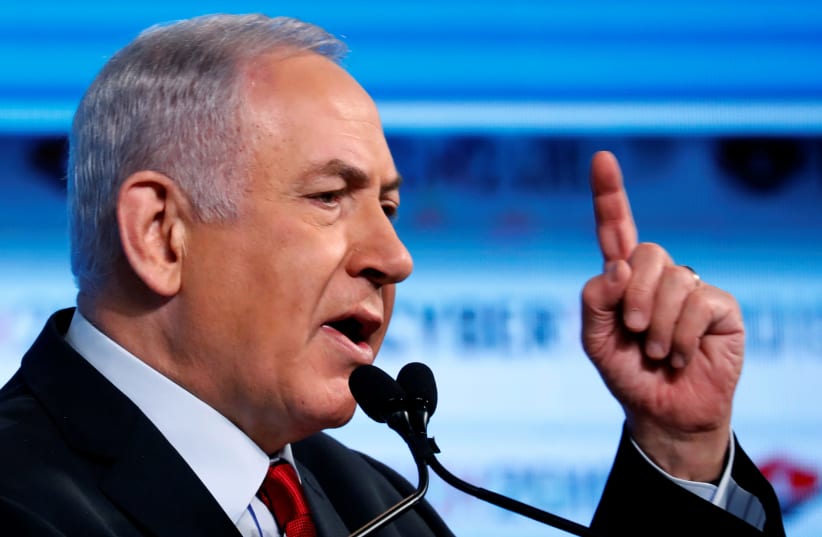The large turnout in state-sponsored rallies, in which US and Israeli flags were burned, came as Iranians face mounting economic hardships, which many blame on the country’s clerical leaders.Pictures on social media showed some people also demonstrating against corruption, unemployment and high prices.It’s been 40 yrs of failure. Now it’s up to the Iranian regime to change its behavior, & ultimately up to the Iranian people to determine the direction of their country. The U.S. will support the will of the Iranian people, & stand behind them to ensure their voices are heard.
— John Bolton (@AmbJohnBolton) February 11, 2019
Netanyahu warns Iran of 'last Revolution Day' after regime's threats on TA
Netanyahu's comments came in response to a threat made by Yadollah Javani, the Guard’s deputy head for political affairs, who said at a rally celebrating the 40th anniversary of the Islamic revolution that the US “does not have the courage to shoot a single bullet at us despite all its defensive and military assets.”
